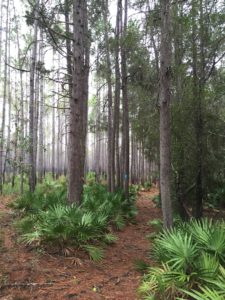Overview
The Regional Recreation Economy Alliance (RREA) is made up of city leadership, federal and state agencies, and interested stakeholder organizations committed to growing the Northwest Florida Regional Recreation Economy Alliance. Through a coordinated effort, the Alliance builds on the Recovery and Resiliency Partnership Project (R2P2) stormwater management and greenspace connectivity efforts and the Florida Panhandle Regional Recreation Economy Summit. Leading to specific steps to further the six-city final report project implementation and summit action plan goals.
The Alliance is an outcome of the Florida Panhandle Regional Recreation Economy Summit held in October 2020. Click here to download the Summit final report, which describes the vision, action plan goals and implementation opportunities identified by summit participants to build the regional recreation economy.
The purpose of this online tool is to support the Alliance by providing all related resources in one place. It serves as hub for linking to relevant information and is not intended to replace existing websites and online tools. This online tool is organized around the six key goals identified by Summit participants and refined by the Alliance to support a thriving regional recreation economy.
- Trails – Develop the regional trail system
- Land – Restore and protect landscapes
- Water – Enhance rivers, lakes and bays
- Culture – Celebrate cultural resources
- Economic – Support cities in recovery
- Explore – Promote regional recreation
About the Alliance
Core members include leadership from the six R2P2 cities, those noted below as primary points of contact and other stakeholders that may join workgroup meetings as needed. For more information, please contact Rick Durbrow, U.S. EPA.
- Coastal R2P2 cities – City of Parker, City of Springfield and City of Mexico Beach
- Inland R2P2 cities – City of Chattahoochee, City of Quincy and City of Marianna
- Apalachee Regional Planning Council, Ben Chandler
- Emerald Coast Regional Council, Ada Clark
- Explore Northwest Florida, Betty Webb
- Northwest Florida Water Management District, Darryl Boudreau
- Florida DEP Office of Greenways and Trails, Britney Moore and Justin Baldwin
- Sentinel Landscapes, Kent Wimmer
- Northwest Florida National Heritage Area, Sorna Kahkzad
- Apalachicola Riverkeeper, Doug Alderson
- North Star Legacy Communities, Dr. Sandra Thompson
- Riparian County Stakeholder Coalition, Ken Jones
- Florida’s Great Northwest, Jennifer Conoley
- U.S. Fish and Wildlife Service, Southeast Conservation Adaptation Strategy, Louise Vaughn
- U.S. Forest Service, Florida National Scenic Trail, Shawn Thomas
- U.S. EPA Region 4, Opportunity Zones Coordinator, Jay Basset
- U.S. EPA Region 4, Sustainability Advisor, Rick Durbrow
- Skeo Solutions, Facilitators, Miranda Maupin and Alisa Hefner
Background
Coastal and inland communities are faced with the daunting task of recovering from the impacts of Hurricane Michael, a Category 5 hurricane that made landfall in October 2018. Storm surges across the Panhandle coast and extremely high winds speeds devastated communities in the region.
In addition to rebuilding lost structures, these communities are working diligently to rebuild more resilient economies and infrastructure. To support recovery from Hurricane Michael, the Federal Emergency Management Agency (FEMA) and the U.S. Environmental Protection Agency (EPA) provided support to six cities in the Florida Panhandle with a technical assistance effort called the Recovery and Resiliency Partnership Project (R2P2).
A key focus is engaging city leadership along with regional, state and national partners in a discussion about how to promote the regional recreation economy to support both physical and economic recovery in the region.
